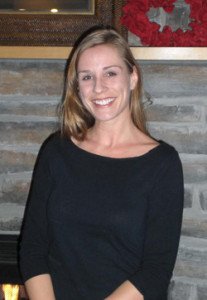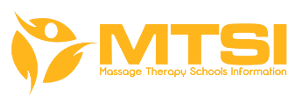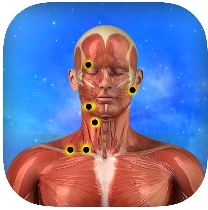
I have been self-employed for the past 10 years. I currently own and operate a corporate chair massage business, where I contract with several independent therapists. We work with several companies in the Milwaukee and Madison areas.
I was also a solo practitioner sharing office space with 2 other people in Madison, WI. Since my son was born 6 years ago, I chose to keep my clientele small, working part-time. My client’s demographics was a range of people from teenagers to elderly and an even mix of male/female ratio.
2. Tell us why you chose to go into massage and at what point in your life did you decide to do so? What were you doing at the time? Where did you first hear about the massage career? What factors influenced your decision? What were you looking to get out of this decision?
I was at a crossroads in my life. I was finishing up a network marketing business in the health care industry and I needed a change. I was familiar with the massage school because there was a health food store attached that I would frequent. Well, one day I received an advertisement in the mail for the school and I decided to sign up. Valuing the holistic and preventative fields, massage school was the perfect stepping stone for me.
3. What were some of your questions and concerns before further pursuing your massage therapy goals? Talk about concerns with school and the profession itself.
I really didn’t have any concerns. Our school was highly rated in the area and provided more hours of training than required by our state. Massage for me was just something I knew I wanted to pursue.
4. What is your specialty and what are the top three contributing factors to your success today?
I love to do therapeutic work and blending my energetic training with it. I contribute my success first to my teacher Chyrise and to the Precision Neuromuscular Seminars taught by Doug Nelson. I also contribute my success to my first two co-workers, Jill and Kurt.
They were both seasoned therapists who taught me so many different techniques and they unspoken “how to just be a darn good therapist” way of being. Other factors include always be mindful, and put the client first when you are working.
5. What do you like about your specialty? What do you like about what you do in general as a career? Why?
I love seeing the outcome. When people come to you in pain and start to feel pain-free for good, this is always exciting for me and helps to validate my training and the education I received.
6. What do you not like about what you do? Why?
I don’t like my ability to say no. I am always willing to take a client which was fine before I had a family and other obligations. I have worked hard to balance my work and family lives and stick the work schedule I have created.
7. If there were three things you could change about your work or the industry as a whole what would they be? Why would you change them? What would you change them to?
8. How long do you plan to practice and what do you plan to do after?
I will always be a massage therapist! Currently, our family is switching gears, and we are traveling a lot more, so I am homeschooling our son. I am also taking this opportunity to take continuing education credits to stay sharp. When I jump back into the field, I plan to do focused sessions and treat people for specific injuries or complaints versus addressing specific areas while including the full body.
When I am “retired” I dream of hanging my shingle outside and working on people for donations. Your session might be 15 minutes or 3 hours! Whatever I feel intuitively guided to do.
9. Do you currently have another job or business whether full time or part time? Tell us a bit more about it and how you are able to juggle that with your massage career?
I have been a massage therapist for the past 11 years. When I first started out I worked as an employee at a small massage office and at an athletic club. This was enough for me to pay the bills. Two years later, through fortuitous events, I met a future colleague who let me use her office space. This granted me the ability to feel comfortable enough to move away from the umbrella of my previous two gigs. I have been a self employed practitioner ever since.
10. What are some mistakes you made in your career pursuit that you’d like to warn other students about so they can learn from your experience and avoid it?
Make sure your clients are aware of your policies and be sure to enforce them. I have my policies on my website and the intake forms that clients are required to sign. I was never very good at enforcing my cancellation or no-show policy and have been burned a few times by regular clients. Your time is worth it, and as long as people know up front than it no longer becomes an issue when you need to address it.
11. What would you advice someone who is looking at massage therapy schools? What do you recommend they look for and how? How do you recommend they determine whether the school is the right one for them?
Be proud of your school. Looking for a school that has a good reputation will help you to feel confident in the education you received. When I first graduated I felt like I knew nothing, but in reality knew a lot, and it was in the school’s success with previous students that gave me confidence when I first got out into the field. For me, it was also an intuitive fit. At the time I was studying Yoga and my school’s Swami kept on coming up in the world around me. I knew I couldn’t go wrong with a school whose owners shared the same Swami as me!
12. What do you recommend for someone who wants to go to massage school but cannot afford it?
Consider using the MTSI’s webpage as a resource. I wish I had something like this when I first started!
13. What are your three biggest points of advice for an aspiring massage therapist today? What should they do/not do? What should they think about and consider?
Professionalism, Mindfulness and Boundaries. As a growing entity that encompasses a lot of bodywork modalities and settings, it is of utmost importance to always be professional. I could write a book on this topic so I will try to shorten it up. We are working on people in a potentially vulnerable setting, everyone deserves to be treated with respect and courtesy.
Is your phone ringing while giving massage? Are you listening to your clients and taking into consideration their position. This ranges from being on the table asking about the client’s comfort, to off the table with pre-massage intake, to setting up the appointment, taking payments and email/phone communications. Please read books about professional development if it is not a strong suit.
Mindfulness–again it kind of goes along with professionalism, but be aware of how your body moves in space. Be aware of your body when working on clients–this encompasses how your touch is affecting them. Are you using too much or too little pressure? Are you breathing all over them, especially when doing facial or neck work?
Are they too warm, cold? Is the face cradle in a comfortable spot? Also being mindful means to recognize when someone might be reticent or unsure about massage, but they received a gift certificate and decided to give it a try. Will you be able to recognize this and help ease their uncertainty through education and by being clear about your work and what you do and why?
Finally boundaries; not only does this cover ethical topics, but your ability to not burn yourself out. Create a schedule that you can maintain and stick to it. Know when you need a break and take it. I have been the last client of the day for some massage therapists, and I could definitely tell that they would rather be someplace else.
14. Any open thoughts / comments – anything else that you’d like to share about yourself, the massage industry, profession, future, etc? If nothing, make one prediction for the future of massage?
Since massage is growing and attracting a diverse audience of therapists with multiple backgrounds and experience, I really hope the massage field will continue to grow in the area of strong research and data. I also hope that massage will continue to be accessible to more and more populations of people.
15. What is your passion outside of massage? What are your hobbies and interests which you pursue when you are not working? Tell us why you enjoy what you enjoy.
My passions outside of massage are dancing, yoga, the earth, my family and friends, cooking and my spirituality. I love the feeling of being healthy and doing good work in the world.
Kimberly Gorichanaz, LMT is the owner of Touchpoint Chair Massage and can be reached on her website here.








Leave a Reply